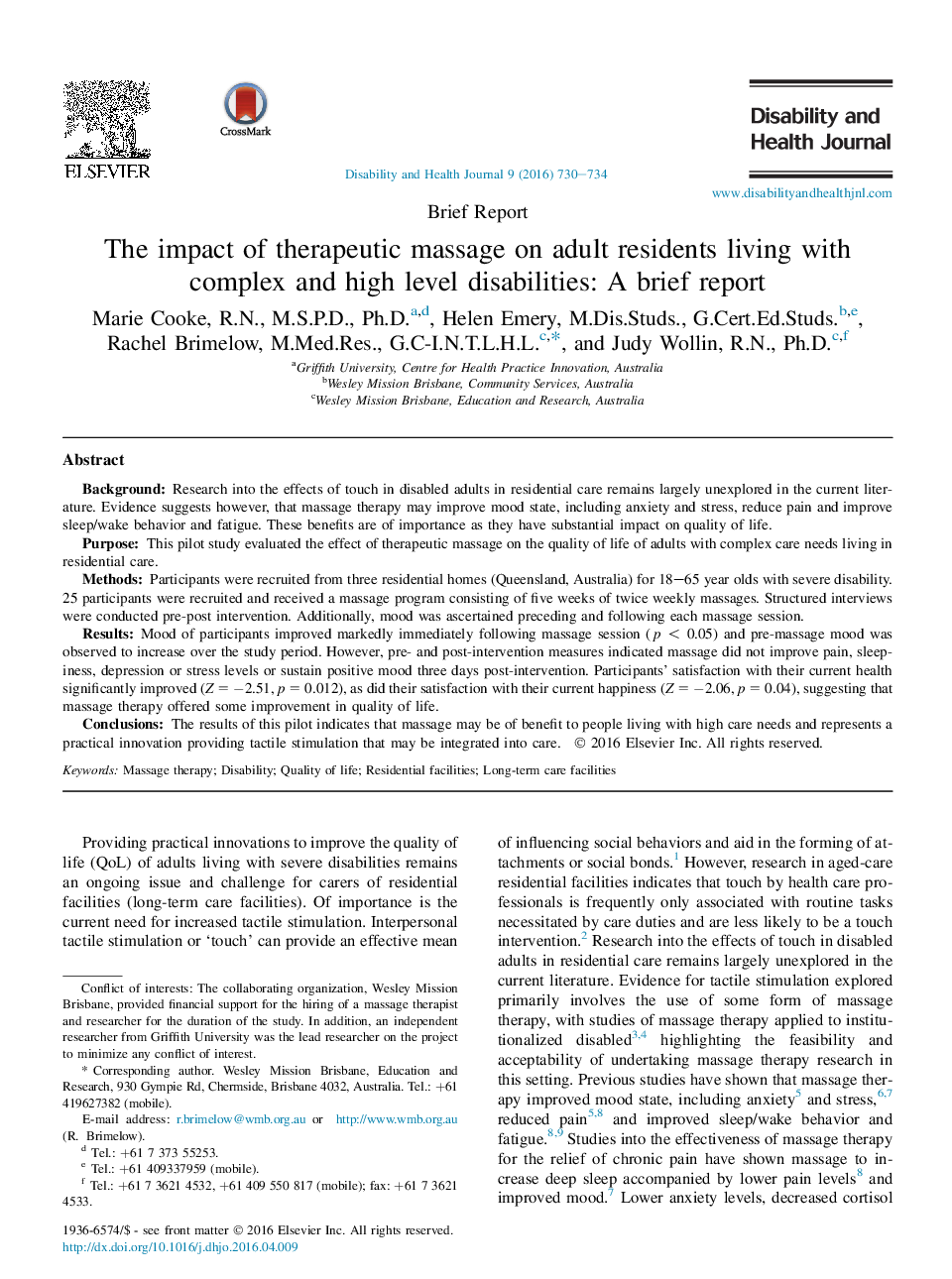| Article ID | Journal | Published Year | Pages | File Type |
|---|---|---|---|---|
| 5723242 | Disability and Health Journal | 2016 | 5 Pages |
BackgroundResearch into the effects of touch in disabled adults in residential care remains largely unexplored in the current literature. Evidence suggests however, that massage therapy may improve mood state, including anxiety and stress, reduce pain and improve sleep/wake behavior and fatigue. These benefits are of importance as they have substantial impact on quality of life.PurposeThis pilot study evaluated the effect of therapeutic massage on the quality of life of adults with complex care needs living in residential care.MethodsParticipants were recruited from three residential homes (Queensland, Australia) for 18-65 year olds with severe disability. 25 participants were recruited and received a massage program consisting of five weeks of twice weekly massages. Structured interviews were conducted pre-post intervention. Additionally, mood was ascertained preceding and following each massage session.ResultsMood of participants improved markedly immediately following massage session (p < 0.05) and pre-massage mood was observed to increase over the study period. However, pre- and post-intervention measures indicated massage did not improve pain, sleepiness, depression or stress levels or sustain positive mood three days post-intervention. Participants' satisfaction with their current health significantly improved (Z = â2.51, p = 0.012), as did their satisfaction with their current happiness (Z = â2.06, p = 0.04), suggesting that massage therapy offered some improvement in quality of life.ConclusionsThe results of this pilot indicates that massage may be of benefit to people living with high care needs and represents a practical innovation providing tactile stimulation that may be integrated into care.
